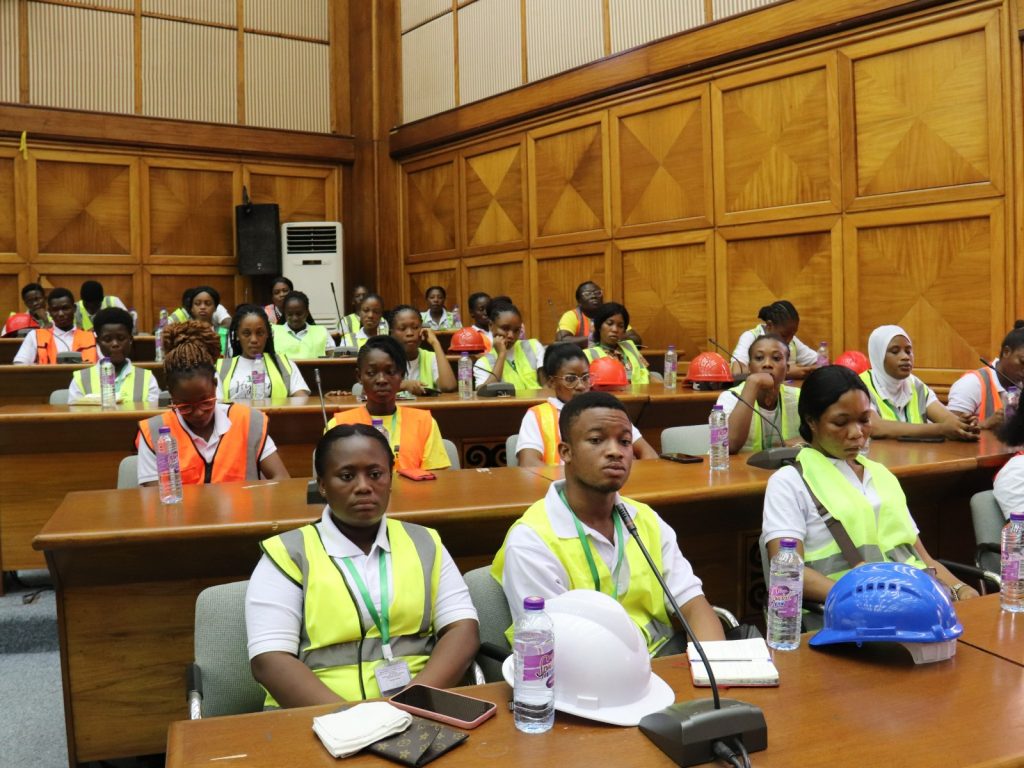By Benjamin A. Commey
Accra, April 28, GNA— Mr Ignatius Baffour Awuah, Minister of Employment and Labour Relations (MELR), says a strong Occupational Safety and Health (OSH) policy and legislation for the administration of OSH is in the offing.
Several Civil Society Organisations and human right activists, in recent times, have expressed concern over the absence of a national policy framework to regulate safety and health at workplaces to ensure the protection of employers.
The Minister, in a speech read on his behalf by Mr Hamidu Adakurugu, Director, Finance and Administration at the MELR, at the commemoration of the 2023 World Day of Safety and Health, in Accra, on Friday, said calls for the promulgation of a comprehensive national OSH law were legitimate.
He indicated that, as a Government, it acknowledged the fact that Ghana’s national policy and legal framework on OSH required drastic improvement to meet the current global safety standards, adding that processes had been initiated to that effect.

“These are genuine concerns that Government is acting upon to establish a strong policy and legislative regime for the administration of OSH,” he noted.
This year’s celebration was on the theme: “A Safe and Healthy Working Environment is a Fundamental Principle and Right at Work.”
The International Labour Organisation (ILO) estimates that millions of workers lose their lives each year due to occupational accidents and diseases, while several more suffer from debilitating work-related injuries and chronic conditions.
Mr Awuah said the growing importance of occupational safety and health in a changing world of work could not be underestimated.
The current state of occupational safety and health lays bare the need to advocate for a safe and healthy working environment as a fundamental human right, he indicated, adding that, across the globe, workers were exposed to a plethora of risks in the world of work.
These risks ranged from biological, chemical and physical hazards, to psychosocial and ergonomical hazards.
Mr Awuah said, over the last seven years, Government had prioritised safety and health at workplaces because compliance and adherence to safety and health standards remained critical areas of concern.
As a sector, he said, it had elevated discussions on occupational safety and health to ensure that safety and health became a part and parcel of everyday lives.

“This is important to curb the increasing incidence of occupational injuries, diseases and casualties,” he added.
While reiterating Government’s commitment in ensuring that occupational safety and health were enjoyed by all as a fundamental human right, he urged the media to intensify public education on the rights of the worker in such life-threatening situations.
Mr George Gashon, Acting Chief Inspector, Department of Factories Inspectorate, said having OSH at workplace was important as it brought about productivity increase in workplace, job satisfaction, and above all competitiveness and we need to hold it in the highest esteem.
He, therefore, emphasised the need for Ghana to have a standard guide for all regulators to ensure the safety and health of all workers.
“We need to have a bill, why? Because we need to have a standard of measurement. We need to have a standard whereby all regulators will use that standard, not necessarily international. We are in the tropics, and we can also look at a standard to measure OSH.
“If we cannot measure then it means we cannot manage. So, it’s very important that we have the OSH policy and the bill, making sure we regulate all workplaces, both formal and informal,” he said.
The World Day of Safety and Health at work is commemorated annually, on April 28 to encourage, support, bolster the need to continuously create a safe and healthy culture, to reduce work-related injuries, accidents, illnesses and deaths for every worker and employee.
GNA